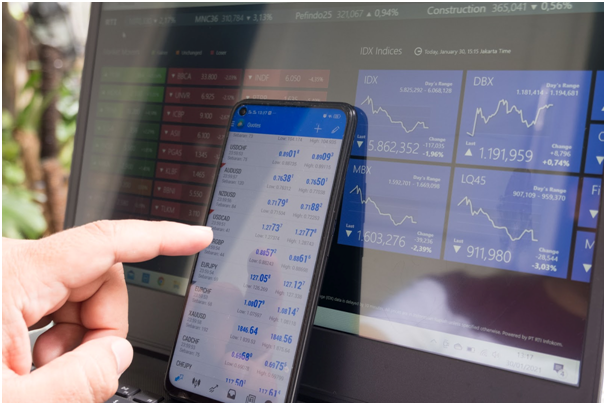Many beginners are wondering which market to choose. It looks like both Forex and CFD have plenty in common. However, you need to learn the difference between them. They are both on-demand among traders, but you may want to learn whether you want to get involved in online CFD, speculating commodities, or prefer currency exchange with Forex.
What Is CFD?
Contract for difference or CFD is the type of trading where both trader and broker agree to pay the difference in the exit and entry price of the asset. This way, traders do not own any assets. They watch carefully on the changes of the value. They also have to check the currency difference and popularity of the subject of trading on the market. Loss and profit usually are calculated considering the change of the price on the exit and entry. It is multiplied by CFD units’ number. You can trade anything on this market.
What Is Forex?
Forex or Foreign exchange market is a global, completely decentralized, market that trades currencies. You can’t trade anything else except currency there. To become successful, you have to learn how to pair currencies against each other. The daily volume of trading is usually over $5 trillion. This is the biggest exchange market in the world.
Major Differences BetweenForex and CFD
Forex and CFD have more similarities than differences. However, this divergence is crucial when it comes to trading. Traders recognize the following distinctions:
- Currency trading for Forex. CFD provides wider options for its traders. You can try stocks, commodities, ETFs, indices, and options on the CFDs markets. Meanwhile, thinking that Forex traders have fewer opportunities to gain is wrong. You may pair a wide range of world currencies;
- CFDs provide different contracts with various currencies and values involved. You may check the origin of the asset to decide which agreements you are ready to make. Forex, on the other hand, is limited in comparing the currencies against each other;
- The influence of outside and inside factors. You have to make sure you understand processes that have their impact on the market. There are lots of them, and they are different for Forex and CFDs. The currency market is mainly influenced by the situation inside and outside the country, including politics. The newly elected president may rise or decrease national currency. Any unexpected announcement from a major political party might also influence Forex. CFDs are dependent on an even wider range of factors. You have to check the political and economical situation. You need to know which product is currently in trend, what audience demands the most, and whether the company supplier has a steady reputation. Use all these factors to forecast possible outcomes and earn a fortune.
Are Forex and CFD Opposite to Each Other?
It would be a mistake to think this way. While we can name barely a few differences, there are lots of similarities between both markets. Check them out:
- Assets ownership does not belong to traders no matter they choose CFDs or Forex;
- Trade execution processes are similar, with decentralized transactions;
- Costs’ systems are similar, which is the spread. This is a perfect way to avoid fees from brokers;
- Ability to go short or long on both markets;
- Leverage use is similar.
CFD or Forex?
The choice depends on your preferences and knowledge. If you are more familiar with commodities trading, pick CFDs, and if you are interested in currency exchange, opt for Forex. Usually, brokers provide you with all the educational information about the market you pick. Still, it is better to have an advantage at the very beginning of your trading career.


